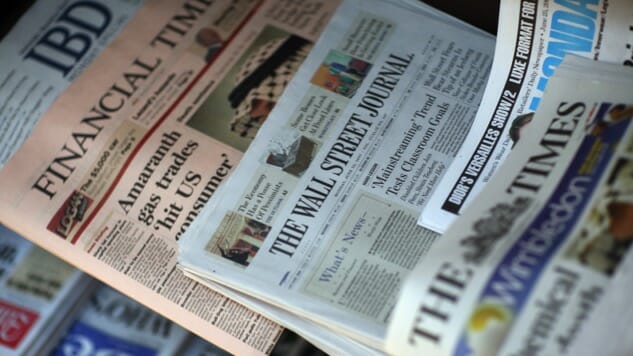Every Journalist is Biased and That’s Fine
Photo by Michael Nagle
I am a journalist, and I have been called biased many times. When a stranger on the internet calls me this, it seems they believe that I will become overwhelmed with anxiety and jump at the chance to display my indifference. That is not what happens. I am biased, and so are all journalists, and that’s perfectly fine.
To say you are completely unbiased would be to say you are not human. Humans are creatures with opinions, and even if you don’t care about a topic that much, you always come to it with some preconceived notions and stances. The fact of the matter is that almost no journalist covers a topic they have no interest in, so it is much more likely they will have many opinions and strong feelings about whatever they cover. Any journalist who tells you they are unbiased should not be trusted or listened to, because they’re either lying or ignorant.
Saying every journalist should have no bias is kind of like saying everyone should be expected to love every single aspect of their job. It’s like saying if you don’t love every aspect of your job, then you are incapable of doing your job. This is obviously false. Just because I personally hate a certain politician or a certain law, that does not mean I cannot cover the topic in an unbiased fashion.
There have been countless times I’ve forced myself to include information about something I despise that makes the subject look better than I’d personally like to make them look. I have written about how a politician lied about something but then also included that the lie really isn’t that big of a deal for various reasons, for example. If my bias prevented me from including this information, then you could say there is a problem, but that is not the case. I believe it is not the case with most journalists, based on my experience.
There is a big difference between what a journalist wants to say based on their opinions and what ends up in an article. If a journalist is writing an opinion piece, then of course it will mostly include one side of the issue at hand, but they’ll typically be far more even-handed when they’re writing a report. Despite these seemingly obvious truths, I still constantly see journalists trying to pretend they’re not biased to save face.
-

-

-

-

-

-

-

-

-

-

-

-

-

-

-

-

-

-

-

-

-

-

-

-

-

-

-

-

-

-

-

-

-

-

-

-

-

-

-

-








































